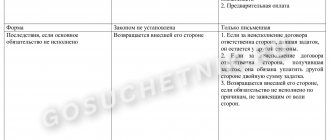Which of us has not visited a notary's office at least once in our lives? It probably won’t be a mistake if we say that most citizens have at some time resorted to the services of a notary - someone entered into an inheritance, someone needed to draw up a power of attorney, will, consent, or for some other need.
When many people mention this institution, they immediately have an image of a long wait for their turn and the often arrogant attitude of its employees. When visiting notary offices, a certain atmosphere of mystery of this community is involuntarily created, with its own internal rules, closed to the eyes of the ordinary citizen.
Notaries work according to the principle “we do as best we can, and we do as we can.” The consequence of this is an appropriate attitude towards the applicant, who, even having paid for the service, must realize that he is also obliged to something for the favor rendered. The reason for this approach lies in the fact that the notary is a monopoly on the performance of certain actions, i.e. what they can do, no one can do.
There are, of course, situations in the law when the certification functions of a notary can be performed by other persons, but this is extremely rare. For example, the head of a correctional institution has the right to certify the power of attorney or will of a person who is in this institution. In this case, a power of attorney or will is equivalent to a notarized one. The need to carry out certification functions by persons specified in the law, rather than notaries, is dictated by specific circumstances when notaries’ access to perform notarial acts is limited or impossible (for example, it is necessary to certify the will of a citizen who is on an Arctic expedition).
Taking into account the fact that the situations mentioned are the exception rather than the rule, in most cases there is no alternative to an ordinary citizen contacting a notary. If, for example, you need legal assistance in solving civil problems, you can contact either an attorney, a law firm, or a private lawyer who does not have the status of an attorney. Accordingly, the citizen has a choice, and accordingly, there is competition. This is not the case with notaries; you can contact them and only them. Hence the corresponding attitude towards you.
An important relaxing circumstance for private notaries is insurance of their professional liability, which is a mandatory condition for carrying out this type of activity. Unfortunately, in practice, insurance of any liability leads to a reduction in the personal liability of the person insuring the liability and placing it on the shoulders of the insurance company.
In addition, notaries are very careful in their activities, the reason for which is the fear of losing their extremely profitable status. If the termination of a lawyer's status by a disciplinary commission deprives a person of the opportunity to defend citizens only in criminal cases, then the loss of the status of a notary means a complete loss of the opportunity to independently work in the provision of notarial services. In this regard, a completely logical approach can be traced in the work of notaries - it is better not to perform any action than to make a mistake when performing it.
I would not like to criticize the existing notary system in any way, although, to be completely frank, it would be nice to see a better attitude on its part in the person of individual notaries.
After reading this article, you will learn what to do when a notary refuses to perform a notarial act or performs it incorrectly.
Who controls the activities of notaries and how?
The fundamental normative act regulating notarial activities is the Fundamentals of the Legislation of the Russian Federation on Notaries. Chapter VII of the Fundamentals provides for two forms of control over the activities of notaries.
The first is judicial control, which consists of checking by the court the correctness of the notarial act or refusal to perform it.
Such a check is carried out at the request of an interested person who considers his right to be violated as a result of an incorrect performance of a notarial act or refusal to do so and appeals this by filing a corresponding application in court.
The second form represents control over the performance by notaries of their professional duties.
This type of control is intradepartmental and largely affects the internal work of notarial activities (record management, payment of fees, reporting and other disciplinary issues). The supervisory authority is determined depending on the form in which notarial activity is carried out - a state notary office or private practice. In the first case, this is the Ministry of Justice of the Russian Federation (Ministry of Justice of Russia), which exercises control in the field of notaries; in the second, it is the notary chambers.
Taking into account that we are primarily interested in assessing the compliance of the notarial acts performed with the current legislation or the legality and validity of the refusal to perform them, we will talk about the first type of control - judicial.
Of course, in addition to the specified special types of control, characteristic of notarial activities, there are other types of control, the so-called general ones - applicable not only to notaries. For example, control over notaries’ compliance with tax legislation is carried out by tax authorities, in the field of pension legislation - supervision is carried out by the Pension Fund of the Russian Federation, etc. Taking into account the topic of this publication and taking into account that the activities of notaries in these areas do not directly affect ordinary citizens, we will not touch upon these types of control.
Notary rights
What are the rights and responsibilities of a notary? Let's start with the rights:
- perform actions provided for by the relevant law when citizens and organizations apply;
- draw up draft contracts, documents, prepare their copies, extracts from them;
- explain current legislation in the area of their competence;
- ask individuals and organizations to submit upon request the documents they have;
- take part in the cadastral registration of real estate and registration of rights;
- receive extracts from the cadastral and real estate rights registration authorities;
- receive extracts from the register of legal entities and individual entrepreneurs.
In what cases can a notary refuse to perform a notarial act?
The refusal to perform a notarial act must be motivated - contain the reasons why the notary refuses to perform the act, and legal, i.e. the reason for the refusal (its basis) must be provided for by current legislation.
The provisions of Article 48 of the Fundamentals of the Legislation of the Russian Federation on notaries establish an exhaustive (closed) list of circumstances under which a notary refuses to perform a notarial act.
In particular, a notary refuses to perform a notarial act if:
- committing such an action is contrary to the law;
- the action must be performed by another notary;
- an incapacitated citizen or a representative who does not have the necessary powers has applied for a notarial act;
- a transaction carried out on behalf of a legal entity contradicts the purposes specified in its charter or regulations;
- the transaction does not comply with the requirements of the law;
- documents submitted to perform a notarial act do not comply with legal requirements.
No other reasons can serve as a basis for refusal to perform a notarial act.
From the above list of grounds it is clear that 3 out of 6 contain the wording “does not comply with the requirements of the law (law)” or “contradicts the law,” which in turn provides the notary with a fairly wide range of opportunities to refuse to perform an action.
A little about the structure
The notary is more of a corporation of professionals than a hierarchical organization operating in a subordination mode. Notaries have the right to act within the limits set by law at their own discretion. For example, they actually work within the framework of their specialization, some prefer to certify transactions, others prefer to formalize inheritance.
Nowadays, almost all the notaries we meet are private practitioners, that is, they work at their own peril and risk and are not funded from the budget. They pay for the rental of premises and the labor of assistants at their own expense, and they are also not relieved of the obligation to pay taxes to the budget and contributions to insurance funds.
How do state notary offices work? The law says almost nothing about them, only making reference to the right of the Ministry of Justice to establish such offices. However, their absence in a certain territory should not limit citizens, and in such a situation, an official of the municipal administration is given the right to perform notarial acts. Previously, the lack of private notaries was compensated by the organization of a state notary office. Now such a policy has been recognized as inappropriate, and some functions, if necessary, are transferred to the municipality. However, such offices still exist.
How is a refusal to perform a notarial act formalized?
Refusal to perform a notarial act is formalized by a corresponding decree of the notary. The basis for making such a decision is the application of the person applying for the commission of the action. For obvious reasons, this application must be addressed to the notary in writing - otherwise the notary will not issue any resolution.
The application must be submitted with a stamp - otherwise it will be almost impossible to prove that you submitted the application. If the notary refuses to accept the application, it must be sent by mail in a valuable letter with a list of the contents and a mandatory return receipt.
A decision to refuse to perform a notarial act is issued within ten days , which is calculated from the date of application for this act.
The refusal decision must indicate:
- Date of its issuance;
- FULL NAME. the notary who issued the decision, the date and number of the order of the judicial authority on his appointment to the position of notary, his notarial district or the name of the notary's office;
- Date of application for notarial action and information about the person applying;
- The notarial act for which this person applied;
- Reasons for refusal with reference to legislation;
- Procedure and deadlines for appealing a refusal.
The resolution is drawn up in two copies, certified by the signature and seal of a notary, and is registered in the book of outgoing correspondence.
Accordingly, one copy is handed over or sent to the person who is refused to perform a notarial act, the other - with the signature of the person to whom the decision was served, or with a note about its sending (delivery) by mail, remains in the notary's files.
But the situation when a notary, upon application, does not issue a resolution to refuse to perform a notarial act or refuses to carry it out, is the basis for a complaint against him to the “senior comrades” who carry out the second type of control - control over the performance of notaries’ professional duties.
General procedure for the provision of notary services
The procedure for notarial actions is an algorithm for the actions of a notary or an official performing his functions in the provision of services for which he is authorized. How does everything happen?
The notary gives a brief consultation, asks clarifying questions in order to understand what the applicant really needs and whether he can be helped.
If yes, then he asks to provide a passport and documents that are needed to provide the relevant service. The notary’s task is, first of all, to verify the legal capacity of the applicant, to understand what he wants and whether he is under pressure at this moment.
Naturally, no one demands to present a certificate from the hospital, but the right remains to refuse to perform the requested action if a person is suspected of mental abnormality.
Next, the notary checks the powers of the applicant (studies the power of attorney, papers giving the right to represent the interests of a legal entity, etc.).
Documents certified by a notary are prepared on secure forms. His personal seal and signature are affixed as confirmation of the will of the persons in whose name the documents were issued.
Copies of almost all documents previously issued by a notary remain in the archive. For example, he must leave copies of contracts, powers of attorney and a number of other documents. Copies of papers not specified in the law remain in the archive at the request of the notary.
What must be proven in court when challenging a notarial refusal?
The subject of proof is determined by the basis on which you were refused to perform a notarial act.
Accordingly, the illegality and groundlessness of the grounds that the notary gave in his decision must be proven.
For example, if an action was refused due to the fact that the transaction to be certified does not comply with the requirements of the law, it must be proven in court that this transaction, on the contrary, complies with the requirements of the law.
In this case, the burden of proof is placed on the applicant.
The notary, in turn, is obliged to prove that the refusal is legal and justified, and there are no grounds for obliging him to perform a notarial act to certify the transaction.
For other grounds, a similar mechanism of proof is applied.
Contradiction with the law
Everyone, without exception, has the obligation to obey the law and act exclusively within its framework. For example, a notary has no right to certify transactions that violate the law. For example, a foreigner acquires ownership of a plot of agricultural land. Or the property is considered restricted in circulation, and the parties to the transaction do not have the right to own it (for example, there is no permission to purchase weapons). There are many options, and actions contrary to the law apply not only to transactions.
What is the result of a case in court? Is it possible to appeal a court decision?
Based on the results of consideration of the application, the court makes a decision.
If the application is granted, this decision cancels the completed notarial action or, in the case of challenging the refusal, obliges the notary to perform such an action.
The adopted decision can be appealed in the manner established by the Code of Civil Procedure of the Russian Federation.
Accordingly, a decision that has not entered into legal force can be appealed on appeal within a month from the date of adoption of the decision in final form.
A court decision that has entered into legal force may be subject to cassation within six months from the date of entry into legal force, provided that before that day all other methods of appeal established by the Code of Civil Procedure of the Russian Federation have been exhausted.
The representative has no authority
Authority is confirmed either by a power of attorney certified by a notary, or by the head of the organization who has the right to issue.
In the notary database you can check whether the submitted power of attorney was actually issued.
The service will be denied if the power of attorney has expired or does not provide the right to sign any documents or perform any actions. All powers must be specified in the document, otherwise it is considered that the holder of the power of attorney does not have them.
Inconsistency of the transaction with the charter
The deal somehow contradicts the charter. There is no consent of the owners to complete the transaction, or it does not correspond to the type of activity. For example, under the guise of non-profit activity, the founders are trying to do business and want to conclude a deal aimed at making systematic profits. The notary will refuse certification if the director tries to go beyond the powers prescribed in the charter or memorandum of association.
State fee for appealing the actions of a notary
An appeal against actions performed by a notary or a refusal by a notary to perform actions occurs in the manner of appealing against the actions of an official. The appeal procedure is established by civil procedural law, while the amount of the state duty when filing such a claim is established by tax law.
IMPORTANT : the state fee is a mandatory fee prior to filing a claim in court.
The state fee for considering a case such as appealing against the actions or inactions of a notary in court is 2,000 rubles for organizations and 300 rubles for citizens.
In case of appeal against the actions of a notary when submitting an application. Payment of the fee is made before filing a statement of claim with the court office. In the statement of claim, the plaintiff makes a note if he is exempted from paying state duty for any reason. If a fee is paid, it is advisable to indicate in the statement of claim the amount of the fee paid and the details of the document confirming payment.
USEFUL : watch a video on reducing state fees in court
If there is a dispute about the right, the dispute is resolved in a lawsuit
The provisions of Article 310 of the Code of Civil Procedure of the Russian Federation, defining the procedural order in which the application of a person who has applied to the court should be considered, establish that in the procedure for special proceedings, statements about a completed notarial act or a refusal to perform it in relation to notaries, officials, authorized to perform notarial acts, provided that there is no dispute about the law between the interested parties.
A court ruling to leave an application for notarial acts performed or to refuse to perform them without consideration, due to the fact that there is a dispute about the right, does not prevent interested parties, including persons in respect of whom notarial acts were performed, from seeking protection of their violated rights and legitimate interests to the court with a corresponding statement according to the rules of claim proceedings in compliance with the general rules of jurisdiction of cases in disputes on the protection of subjective rights" (Determination of the Constitutional Court of the Russian Federation of June 20, 2006 N 224-O).








